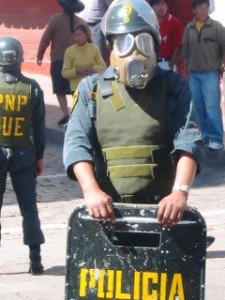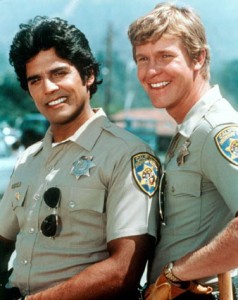Overland advice series, 8 of 10:
When planning we had a pretty good sense that bandits wouldn’t kidnap us, the truck frame wouldn’t snap nor would we disappear in the Nicaraguan jungle. But we knew from a bit of previous wandering south of the border that the police in Latin America can be corrupt.
One of the worst was in Ecuador where a young officer on a dirt bike led us down to a dark alley on the wrong side of town. He wore a black face-cover as he listed off his demands. In Honduras an officer holding a shotgun made the internationally recognized hand-gesture of ‘I’ll slit your throat’ before his comrade flagged us down at their road block.
Over the last 13 months we’ve been stopped no less than 25 times. In some countries like Chile and El Salvador you’d be hard-pressed to find a corrupt cop. Even in places well known for corruption like Mexico and Honduras the majority of our stops involved no funny business.
Here’s our technique on dealing with the not-so-friendly stops:
- Don’t assume any stop will be corrupt. A warm smile and a well placed compliment of their country brings out the best in people. This is your best defense.
- Carry the following items which are frequently requested: 3 safety triangles, fire extinguisher, and adhesive reflective tape. Also keep your headlights on at all times in Peru, Chile and Argentina.
- Show them your easily replaceable AAA international drivers license. It’s many pages are in 10 languages and the stamps plus the passport photo make it look like a generic official document. Chances are they have never seen one and you can claim it is anything.
- If they tell you that you have a fine, infracion, or multa simply state you don’t speak Spanish. The majority of them will give up realizing you’re not worth the hassle. In Peru we held elaborate two minute Spanish conversations with officers only to turn dumb when it came to understanding the fine. It worked like magic.
- Never pay a fine on the spot. This is a bribe. In each country it is illegal for a police officer to accept or request money of any sort. Fines are typically paid at the nearest bank or police station.
- Tell them you will take the ticket and pay it. It is extremely rare that they actually write you a ticket. Of the hundred PanAm overlanders we’ve met we know of exactly two tickets being issued. They will tell you anything (The bank is 100 miles in the opposite direction, our police station is closed today) to try and get you to pay them without writing up a ticket. Chances are the actual fine will be half of what they’re requesting.
- They will make up any infraction to get you to pay for their weekend bar tab. But even if you are in clear violation of the law (speeding, no insurance card) it is common to get off without paying.
At a different stop in Honduras (half a mile down the road from the 1st) the cops had a well rehearsed good cop, bad cop routine. For 45 minutes the bad cop made threats while the good cop attempted to intervene for a small fee. At the end, both came over to shake our hands and send us off with a warm buen viaje!
Don’t sweat it. This is just a game to them adding spice to their otherwise boring day. Enjoy the show and remember your lines. It’s all part of the experience.
Leave a comment and share your own tips.























































I wish you guys let me play hardball with the Ecuadorian cop, but my mother was scared.
-Ant
In Mexico I sometimes simply ignored the (very vague) signal to stop; it looked like a friendly hand wave, so I greeted back. We found it, in addition to your observations, very helpful when Yasha intervened at some point; she’s a woman with some gray hair, and all South American machos have the highest respect of their mother, so when Yasha became determined the cops often stepped back and let us go.
Cannot begin to imagine HOW either of you ( and your belongings ) survived these isolated travels.
Mexico & Central America are jammed with psychotic narcos, extortion syndicates & roaming bangers all who would drool over such careless and defenseless vulnerability.
May all of your your limbs remain attached.